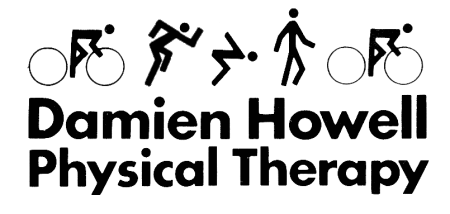Expectations Treatment Outcomes

The expectations of a patient, patient satisfaction regarding treatment and treatment outcomes are related in a very complex manner. Whether you have an over use injury as a result of recreation sports, a traumatic injury, or chronic musculoskeletal disease process like rheumatoid arthritis awareness of the interaction of your expectations, satisfaction with treatment provided, and the actual objective outcomes of treatment/intervention is important.
A common belief is that what our expectations are can influence outcomes and results. Norman Vincent Peale coined the concept of the power of positive thinking. The practice of positive imagery is used by many. There are studies reporting that a positive expectation is associated with better health outcomes. There are studies that patients with negative expectations will have worse health outcomes. Generally optimistic patients are more likely to get better than patients who are more pessimistic. If you expect a certain outcome you will likely achieved that outcome. If you create the image of certain outcome in your mind, you will likely achieve the imaged outcome. This notion helps me understand why some patients get better with what has been proven to be ineffective treatments.
Studies have shown that allowing patients to maintain a more positive outcome expectation results in higher patient satisfaction. Physicians who were trained and practice complementary alternative medicine have patients reporting higher patient satisfaction compared to physicians who provide conventional medicine (Busato A 2010). Complementary alternative medicine is often considered to be medicine lacking in scientific evidence. The patients receiving complementary alternative medicine experienced less symptom relief worse outcomes compared to patients receiving conventional medicine.
Treatment outcomes are not only associated with the actual effectiveness of the chosen treatment. Treatment outcomes can be associated with a variety of psychological and societal factors.
If a patient is satisfied with treatment provided you might expect that the outcome of the intervention would be positive. However, studies have shown that people like and are satisfied with the Physical Therapy treatment they received whether it worked or not. Treatment outcomes were infrequently and inconsistently associated with patient satisfaction. I have observed patients who were satisfied with their Physical Therapy treatment and the intervention was not successful, and conversely I have observed patients who were not satisfied with their Physical Therapy treatment and the intervention was successful. Be honest with your healthcare provider tell them you are satisfied with their effort, but if you are still having problems tell them.
A treatment outcome may meet the expectations of the patient, but not always. A treatment outcome may be in concert with the patient satisfaction but not always.
The clinician:
- Should encourage patients to share his/her expectations, and consider their expectations in the development of the treatment plan
- Should consider allowing interventions which lack strong evidence supporting effective treatment if the patient has communicated that he/she expects the particular treatment to have a positive outcome
- Can strive to support and enhance the patient’s positive expectations
- Describe the expected outcome or prognosis diplomatically avoids adversely affecting the patients expected positive outcome against an honest prognosis based on scientific evidence
- Recognize that if the patient expresses satisfaction with the intervention, but the objective measures are not the desired results the clinician should continue to intervene until real objective treatment effect occurs
The patient should look for a clinician who:
- Will recognize and allow you to utilize your positive expectations
- Discusses with you the risks and benefits of alternative medicine/interventions
- Will be honest and tell you when your alternative medicine/intervention choices are contrary to evidence based choices
- Consider the evidence presented by the clinician that your preferred intervention may not be effective, nor the best choice
- Be optimistic
- Can motivate you
If either you or your clinician sense that there is a difference between expectations of what the outcome can be additional meaningful communication is obviously needed. Of course if you cannot agree on the expected outcome and the appropriate intervention both parties should search should to find someone who can agree and work together.
Damien Howell Physical Therapy – 804-647-9499 – Fax: 866-879-8591 At-Home, At Office, At Fitness Facility – I come to you, I do home visits Damien@damienhowellpt.com
